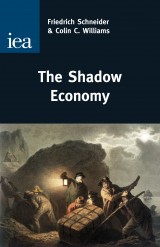It has always been a bit depressing reading about trade negotiations, which have long been a battleground between competing interests – nation against nation, industry lobbies against the general interest, developing against rich world. Mutual gains from trade, anyone? The World Trade Organisation has been a particular focus of suspicion on the part of people who are anti-capitalism or anti-corporate. Most economists note that no country has ever developed out of poverty without opening up to trade, although of course views differ about how to do so, with some liking the idea of protecting certain industries.
I think these arguments are almost always wrong – the extremely rare potential exceptions involve very large economies of scale where the global market can only support a very few competing firms (aerospace?) and culturally important goods or services where replacement of domestic by global goods could have adverse non-economic externalities (French movies?).
There are claims that the successful Asian economies only developed because they protected their new industries but this misreads the character of state intervention. Joe Studwell’s excellent book [amazon_link id=”1846682428″ target=”_blank” ]How Asia Works[/amazon_link] shows that the success stories in the region provided production subsidies and infrastructure but made very sure domestic ‘champions’ were exposed to the full blast of international competition.
[amazon_image id=”1846682428″ link=”true” target=”_blank” size=”medium” ]How Asia Works: Success and Failure in the World’s Most Dynamic Region[/amazon_image]
Still, the economic arguments don’t explain why it’s so hard to get a trade deal. In theory the WTO is a better forum than its predecessor, the GATT talks, because it is rules-based and puts every member on an equal footing. Yet there have always been suspicions about its legitimacy as a place where all countries get a fair deal. It is one element of the wider shortcomings of global economic governance. Jim O’Neill’s new book in the Perspectives series, The BRIC Road to Growth, calls for urgent reforms of the governance institutions. The ones we have can’t respond quickly to events, and don’t reflect the shift of economic gravity that has already occurred and will continue. These are linked: effectiveness is rooted in legitimacy. Whatever the outcome of the talks in Bali, the wider global governance problem just won’t go away.
[amazon_image id=”1907994130″ link=”true” target=”_blank” size=”medium” ]The BRIC Road to Growth (Perspectives)[/amazon_image]


